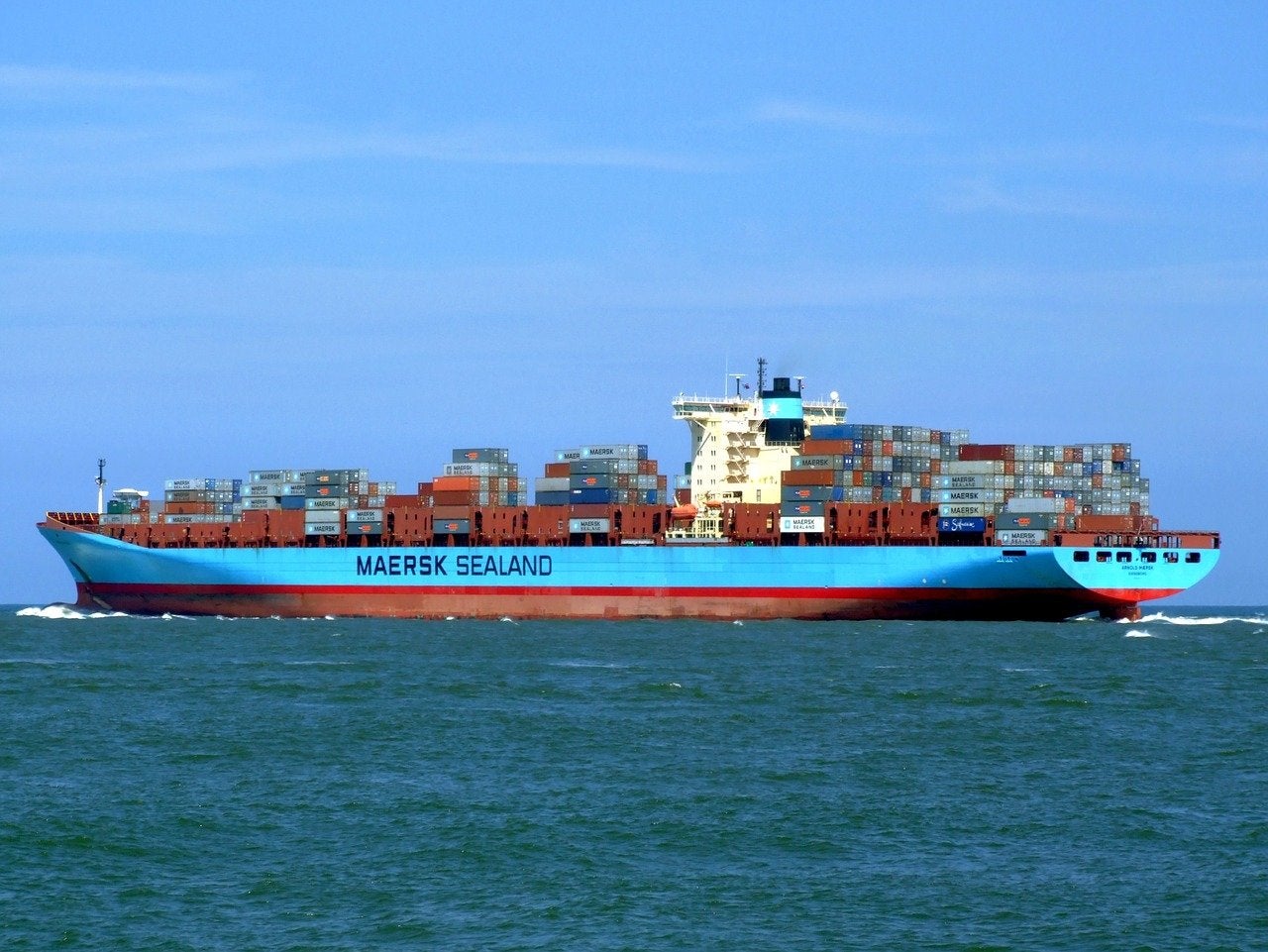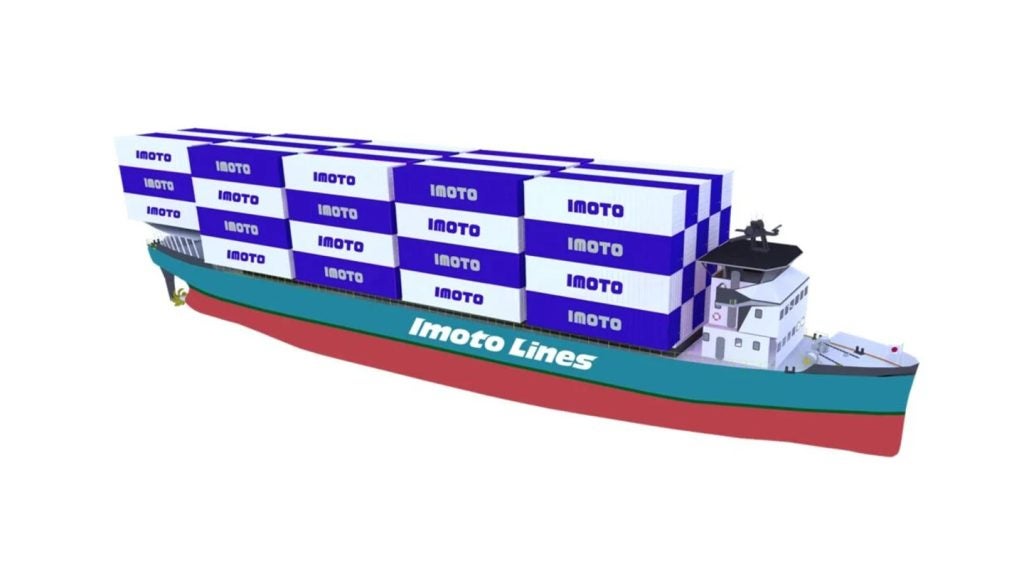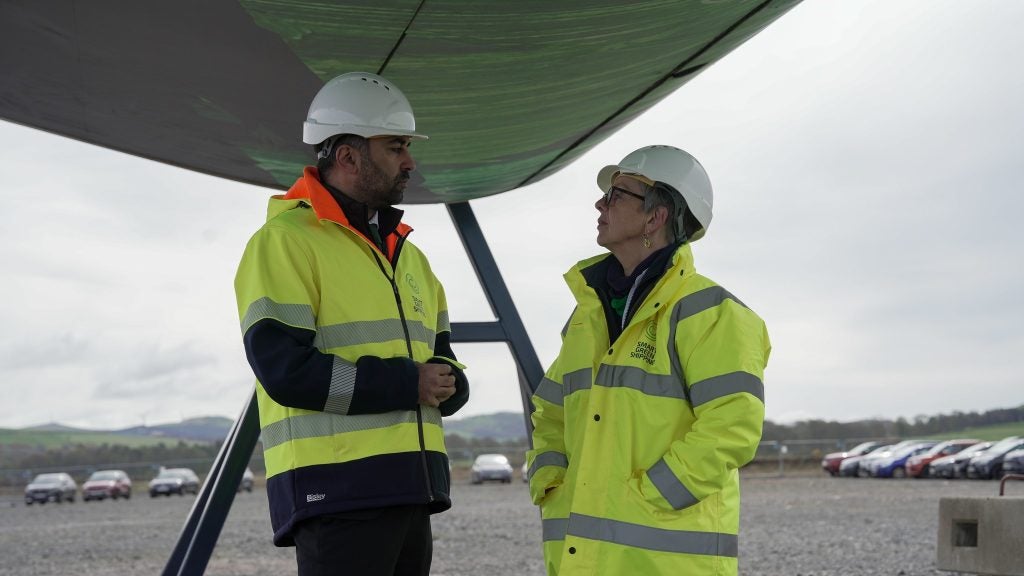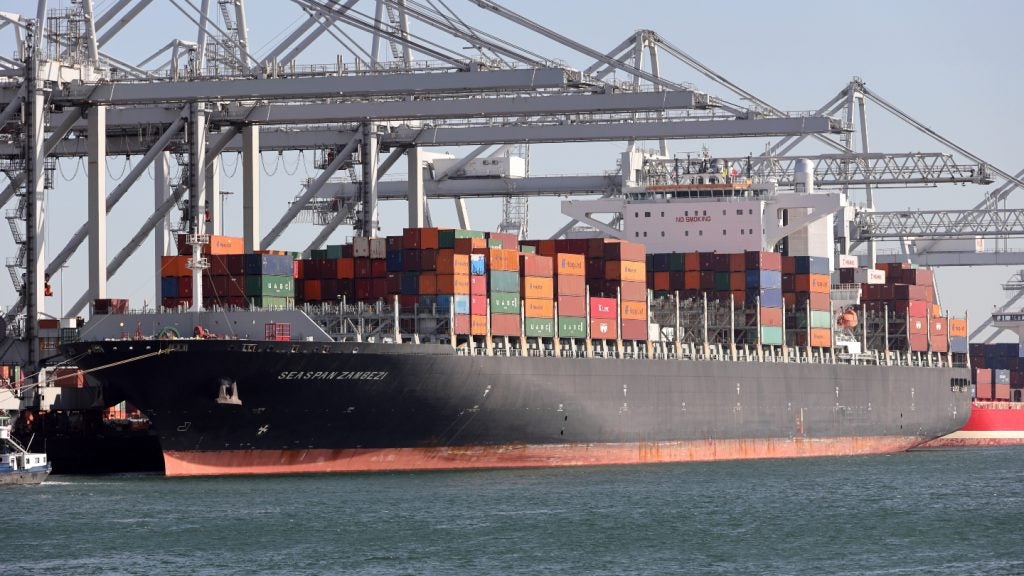
Maersk announced the world’s first methanol-powered shipping vessel in June, representing a steppingstone towards the industry’s goals to reduce its environmental impact.
The company said at the time that it believes that green methanol is the fuel of the future. Could vessels such as this one, which is currently in development, be the next big thing for the industry?
Founded in 2001, the International Council on Clean Transportation (ICCT) is an independent, non-profit organisation that aims to improve the environmental performance and energy efficiency of marine, road and air transportation to benefit public health and reduce the impacts of climate change.
We speak to ICCT marine programme lead Bryan Comer to find out more about the benefits of methanol use and what more the industry could do to reduce its environmental impact.

How well do you really know your competitors?
Access the most comprehensive Company Profiles on the market, powered by GlobalData. Save hours of research. Gain competitive edge.

Thank you!
Your download email will arrive shortly
Not ready to buy yet? Download a free sample
We are confident about the unique quality of our Company Profiles. However, we want you to make the most beneficial decision for your business, so we offer a free sample that you can download by submitting the below form
By GlobalData
Frankie Youd: What are your views on the recent announcement on Maersk’s methanol vessel?
Bryan Comer: We’ve seen that Maersk has taken an interest in not waiting for the regulatory community to force the transition to new fuels and technologies. They have tried to get ahead of the curve and try out some new possibilities for fuels and engines, and what can be used to transition from completely fossil fuel ships where we are today to zero-emission vessels which is where we need to go.
I was pleased to see that they were considering looking at a way to power their ships with net-zero emissions. There’s been some differing opinions about how to achieve the transition from fossil fuel ships to zero-emission vessels. There’s a number of different possibilities for fuelling large container ships.
What’s really important is to look at not only the emissions that come out of the exhaust but also the emissions associated with creating the fuel in the first place. While methanol, if it’s going to be burned in an engine, is going to have some direct emissions of carbon dioxide and other pollutants, we need to look at the upstream emissions and figure out how the methanol was made. Is it legitimate to call it net-zero emissions or low emissions or not? I think that’s the key question here is how is the methanol that they’re going to use going to be produced and does it actually have bona fide climate credentials.
Not all methanol is carbon neutral. Could you explain this?
When we say ‘green’ methanol, people might interpret that in different ways. I think it’s really important to do the lifecycle analysis and do the maths, share the work, explain the assumptions, and then let external experts review that and comment upon it.
The question for methanol is where has the carbon, that’s in the methanol itself, come from? Is it from some sort of plant-based material, is it some waste-based material from animals, or manure, or is it from the air, is it direct air capture? Even if you know the answer to those questions, not all bio-sources are created equal. Some are driving deforestation and others aren’t, the ones that aren’t are very expensive. If you’re going to do direct air capture, that’s also quite expensive as well.
The economics would favour using the cheapest source of carbon to make the fuel, and unfortunately, those could be – depending on who you’re talking to you – some might call them ‘green’ but if you talk to a lifecycle expert, they will say absolutely not, they’re as bad as, or maybe worse than, the fossil fuel alternatives
Do you think that alternative fuels, such as methanol, and LNG are the future for the industry?
Right now, there’s the increasing popularity of liquefied natural gas (LNG), but we see that as a big step backwards. The engines that ship’s use end up wasting a large amount of the LNG that’s put into the engine to the atmosphere and LNG is almost exclusively methane; that’s a very strong global warming pollutant.
We think that if it’s the choice of between LNG or methanol, methanol is a lot better because even if some of the methanol is not combusted it doesn’t have that same global warming consequence as methane. Maersk, to their credit, have said that they will not use LNG as a marine fuel, because of the methane slip problems with it.
What fuels are more carbon neutral?
Other groups, including ourselves, are looking at the potential of using renewably-made hydrogen and renewably-made ammonia as marine fuels. These have got a lot of attention because if you use hydrogen in a fuel cell, it’s going to be zero emissions. The only thing you’re going to get is water vapour and heat, and as long as the hydrogen is made from renewable electricity and water then you can basically say that it has zero or near zero lifecycle emissions.
For ammonia, we expect that to be burned in an internal combustion engine as the most likely pathway. Even if the ammonia is made from renewable electricity and nitrogen from the air, if you burn it, you’re going to produce NOX; that’s an air pollutant and it also leads to poor health effects in port communities. You’re going to create nitrous oxide, N2O, also called laughing gas, and that’s a very strong global warming pollutant – 300 times stronger than carbon dioxide.
Even though ammonia is a zero-carbon fuel it’s not necessarily a zero carbon dioxide equivalent fuel because it has greenhouse gas emissions associated with it.
Do you think the industry is currently making progress when it comes to reducing its environmental impact?
Yes, although I think they could use some assistance from the global regulators because what companies are going to need to make these investments in emissions reduction technologies, energy efficiency technologies, and ultimately zero-emission technologies, is some sort of target. They need to know when they need to get to zero.
Right now, there’s no zero date for shipping. If the industry can figure out when it has to get to zero, the pathway that it’s on, how quickly do they need to get to zero… If the regulators can provide that to the industry that would make investments a lot easier.

On the flipside, the International Maritime Organisation (IMO) has a large industry representation both by the NGOs that represent the industry like shipowner groups for instance, but also within IMO delegations the shipping industry makes up a large proportion of the delegates at the IMO.
While the IMO needs to be clear for the global industry, what its target ought to be, the industry is in the room and is actively participating in these negotiations and so they should support figuring out what the trajectory should be, make sure that there’s as few exemptions, as possible, and that the targets are clear and that would just make it a lot easier for investment decisions by any shipowner.
What more does the industry need to do to achieve a greener future?
The global shipping industry as a whole needs to recognise that it has a responsibility and a role to play in decarbonising the global economy. The shipping sector is a, is a key part of the supply chains for almost every industry, and so it really does have a responsibility to make sure that it does its part to prevent the worst consequences of climate change.
To do that the industry needs to stop increasing its emissions every single year, which has been the trend over the last couple of decades, but to actually start reducing their absolute emissions and get it on a pathway to zero.
I would say that one concrete thing that the industry can do would be to support a zero-emission target for the IMO, as it revises its greenhouse gas strategy. That revision will be agreed to in 2023, and zero by 2050 target I think could make sense, could be achievable and help.
Along with that zero by 2050 target, there need to be targets along the way for 2030 that reduce emissions by a third, and 2040 that reduce emissions by two-thirds.







Related Company Profiles
Maersk Line AS